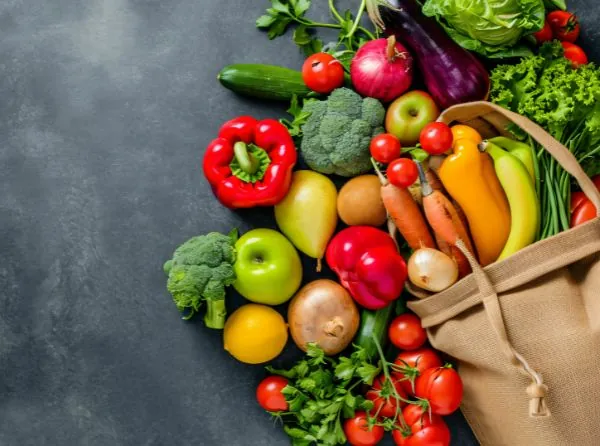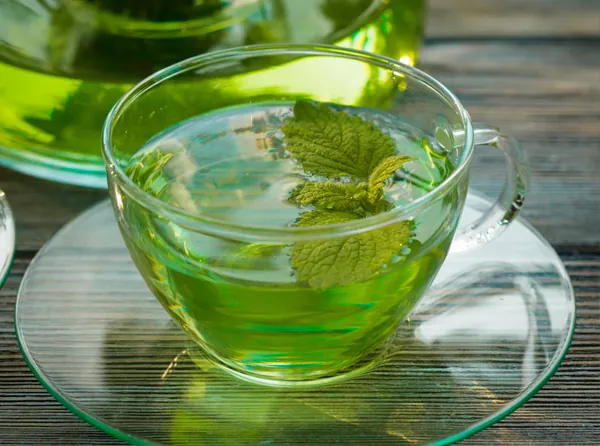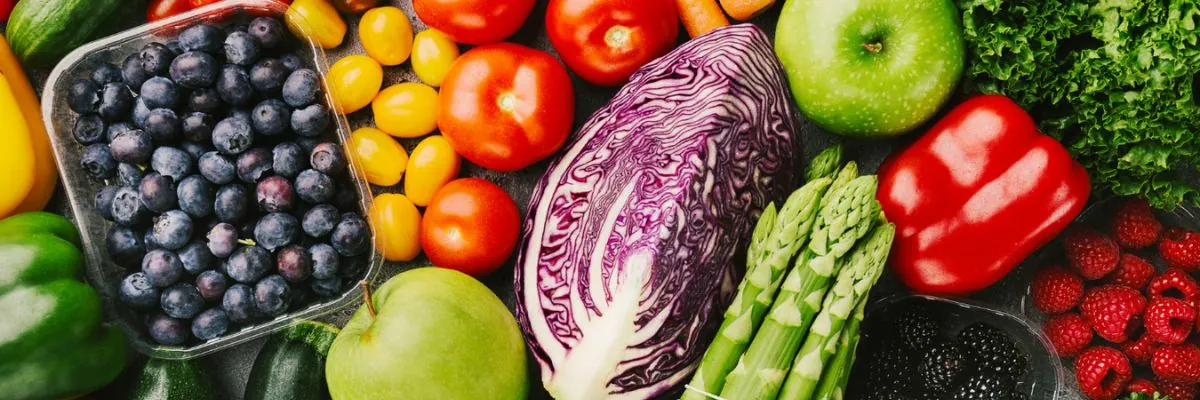The pursuit of well-being often begins with our dietary choices, recognized for their profound impact on health markers such as cognitive function, immune resilience, and disease prevention. Yet, amidst the widely acknowledged benefits of a balanced diet, an important question arises: Can our nutritional intake extend its influence to the appearance of our skin?
While scientific research is still evolving in this domain, there exists a growing body of anecdotal evidence and logical reasoning suggesting a profound connection between diet and skin health. Studies have hinted at the potential benefits of a diet rich in fruits and vegetables, linking it to improved skin tone and complexion. Although further investigation is warranted to definitively establish this correlation, the notion that dietary habits can affect the body’s largest organ, the skin, holds merit. Exploring the best food for skin, however, reveals a variety of options that can nourish and support skin health from within.
Essential vitamins for healthy skin
When it comes to considering the best foods for your skin, focusing on those rich in Vitamin A, C, B2 (Riboflavin), biotin, and E is essential. These nutrients play vital roles in promoting skin health, from supporting collagen synthesis and cell regeneration to protecting against oxidative stress and maintaining skin hydration.

Vitamin A
Vitamin A plays a vital role in skin health by promoting cell turnover and supporting the production of collagen, a protein essential for maintaining the skin’s structure and elasticity. Sources of vitamin A include sweet potatoes, carrots and spinach.
Vitamin C
As a powerful antioxidant, vitamin C helps protect the skin from free radical damage caused by environmental stressors like UV radiation and pollution. It also plays a key role in collagen synthesis, aiding in wound healing and promoting a radiant complexion. Citrus fruits, strawberries, bell peppers, and broccoli are rich sources of vitamin C.
Vitamin B2 (Riboflavin)
Vitamin B2 is essential for maintaining healthy skin by supporting cell regeneration and repair processes. It also helps regulate oil production, promoting a balanced complexion. Good dietary sources of vitamin B2 include almonds, mushrooms, spinach, and eggs.
Biotin
Biotin, also known as vitamin B7, is crucial for maintaining healthy skin, hair, and nails. It supports the production of keratin, a protein that forms the structural basis of the skin, hair, and nails. Foods rich in biotin include eggs, nuts, seeds, and sweet potatoes.
Vitamin E
Vitamin E acts as a potent antioxidant, protecting the skin from oxidative stress and promoting overall skin health. It also helps maintain skin hydration and elasticity, reducing the appearance of wrinkles and fine lines. Sunflower seeds, almonds, spinach, and avocado are excellent sources of vitamin E.
Best fruits for the skin
Mango
Mangoes are rich in Vitamin C, which is essential for collagen production and skin elasticity. They also contain Vitamin A, promoting skin cell turnover and repair.
Blueberries
Blueberries are packed with antioxidants, particularly Vitamin C and anthocyanins, which help protect the skin from oxidative stress and maintain its youthful appearance.
Watermelon
Watermelon is hydrating and contains Vitamin C and lycopene, which helps protect the skin from sun damage and contribute to overall skin health.
Kiwi
Kiwi is an excellent source of Vitamin C, Vitamin E, and antioxidants, which can help promote collagen synthesis and protect the skin from free radical damage.
Pomegranate
Pomegranates are rich in antioxidants, including Vitamin C and ellagic acid, which may help reduce inflammation, promote skin regeneration, and protect against UV damage.
Olives
Olives and olive oil contain monounsaturated fats and Vitamin E, which help nourish the skin from within, keeping it moisturized and supple. Additionally, the antioxidants in olives may help combat oxidative stress and premature aging.

Best vegetables for the skin
Avocado
Avocados are rich in healthy fats, Vitamin E, and antioxidants, which help moisturize the skin, reduce inflammation, and promote overall skin health.
Carrot
Carrots are loaded with beta-carotene, a precursor of Vitamin A, which is essential for skin cell renewal and maintaining a healthy complexion. They also contain antioxidants that help protect the skin from damage.
Sweet potato
Sweet potatoes are packed with beta-carotene, Vitamin C, and Vitamin E, all of which contribute to healthy skin by promoting collagen production, reducing inflammation, and protecting against sun damage.
Courgette (Zucchini)
Courgettes are low in calories and high in water content, making them great for hydration. They also contain Vitamin C, which aids in collagen synthesis, and antioxidants that help combat oxidative stress and premature aging.
Spinach
Spinach is a nutrient powerhouse, rich in Vitamin A, Vitamin C, Vitamin E, and antioxidants like lutein and beta-carotene. These nutrients promote skin repair, protect against UV damage, and maintain a youthful appearance.
Best dry fruits for skin
Walnuts
Walnuts are rich in omega-3 fatty acids, Vitamin E, and antioxidants, which help nourish the skin, maintain its elasticity, and protect it from oxidative stress and inflammation.
Chervil
Chervil is a herb that is often used as a seasoning, but it can also be dried and consumed as a dry fruit. It is rich in Vitamin C, Vitamin A, and antioxidants, which promote collagen production, skin repair, and protection against free radicals.
Almonds
Almonds are packed with Vitamin E, which acts as a powerful antioxidant, protecting the skin from sun damage and premature aging. They also contain healthy fats and protein, which help keep the skin hydrated and supple.
Pistachios
Pistachios are a good source of Vitamin E, Vitamin B6, and antioxidants like lutein and zeaxanthin, which help protect the skin from UV damage, improve skin texture, and reduce the risk of acne and other skin conditions.
Cashews
Cashews are rich in zinc, which is essential for collagen synthesis and wound healing. They also contain Vitamin E and antioxidants, which help maintain skin elasticity and protect against oxidative stress.
Other foods with skin benefits
Green Tea
Green tea is rich in antioxidants, particularly catechins, which help protect the skin from damage caused by UV radiation and environmental pollutants. It also has anti-inflammatory properties that may help reduce redness and inflammation associated with acne and other skin conditions.

Ginger
Ginger contains gingerol, a compound with antioxidant and anti-inflammatory properties that can help improve skin texture, reduce inflammation, and promote overall skin health. It also stimulates circulation, which may contribute to a radiant complexion.
Chia Seeds
Chia seeds are a good source of omega-3 fatty acids, antioxidants, and fiber, which help nourish the skin, reduce inflammation, and promote collagen production. They also help maintain skin hydration and may improve skin barrier function.
Turmeric
Turmeric contains curcumin, a compound with potent antioxidant and anti-inflammatory properties. It can help protect the skin from oxidative stress, reduce inflammation, and promote wound healing. Turmeric is often used topically or consumed internally for its skin benefits.
Incorporating these foods into your diet can complement your skincare routine and contribute to healthy, glowing skin from the inside out. Beyond surface-level beauty, it’s crucial to recognize the profound impact of nutrition on overall health and well-being. A holistic approach to healthcare emphasizes the importance of addressing not only symptoms but also underlying root causes, and functional medicine offers an exceptional tool in this regard. For more information on functional medicine and how nutrition plays a vital role in achieving optimal well-being, explore my insights and expertise in functional medicine, personalized treatment plans, and lifestyle changes designed to support your journey toward great health. Let’s embark on this transformative path together!



